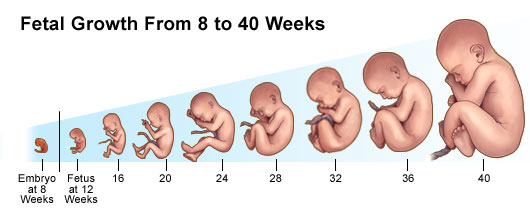2nd Week Baby Development

Table of Contents
What to Expect on Your Baby’s Second Week of Life

Table of Contents
What to Expect on Your Baby’s Second Week of Life
Congratulations on your little bundle of joy! Your baby’s second week of life is a crucial time for development. During this stage, your baby will experience a lot of changes, both physical and emotional. You might notice them becoming more alert, responsive, and sensitive to their surroundings. This week, we will explore what to expect during your baby’s second week of life and how you can best support their development.
Physical Development
During the second week of life, your baby will continue to grow at a rapid pace. They might gain an average of one to two ounces a day and grow half an inch in length. Their head circumference may also increase by about half an inch. This growth is necessary for your baby’s overall health and development.
You might also notice that your baby’s umbilical cord has fallen off or is starting to look dry and scabbed. This is a normal part of your baby’s healing process. Always keep the umbilical cord area clean and dry to prevent infection.
Your baby might also experience some physical reflexes during their second week of life. These reflexes include the rooting reflex, which is when your baby turns their head towards something that touches their cheek, and the grasp reflex, where your baby grips onto something that touches their palm.
Emotional Development
Your baby’s emotional development is just as important as their physical development. During the second week of life, your baby might become more alert and responsive to their surroundings. They might also start to develop a sense of security and trust in their caregivers, especially if they receive consistent and positive attention.
This is also a crucial time for bonding between you and your baby. Spend time holding, cuddling, and talking to your baby. This can help them feel loved and secure, which is essential for their emotional development.
Feeding
Breast milk or formula is essential for your baby’s growth and development during their second week of life. Most newborns will feed every two to three hours, or whenever they show signs of hunger. These signs might include crying, sucking on their hands, or rooting.
Make sure you burp your baby after each feeding to prevent gas and discomfort. If you have any concerns about your baby’s feeding or weight gain, talk to your pediatrician.
Sleep
Newborns typically sleep for 16 to 17 hours a day, but they might not sleep for more than a few hours at a time. It’s important to establish a consistent sleep routine for your baby, such as a bedtime routine that includes a warm bath or a soothing lullaby.
Make sure your baby sleeps on their back to reduce the risk of sudden infant death syndrome (SIDS). Keep your baby’s sleeping area cool, quiet, and free from any loose objects or soft bedding.
Conclusion
Your baby’s second week of life is a time of rapid growth and development. Make sure to provide them with plenty of love, attention, and nourishment to support their physical and emotional wellbeing. Always consult your pediatrician if you have any concerns about your baby’s health or development.
Frequently Asked Questions
Q: Can my baby see and hear during their second week of life?
A: Yes, your baby’s vision and hearing will continue to develop during their second week of life. They might start to respond to sounds and focus on objects that are close to their face.
Q: How often should I change my baby’s diaper during their second week of life?
A: Newborns typically need their diaper changed every two to three hours, or whenever they have a bowel movement. Check your baby’s diaper often to prevent diaper rash or discomfort.
Q: When should my baby start to smile?
A: Your baby might start to smile during their second month of life. However, they might also smile in response to your voice or touch during their second week of life.
Q: How can I tell if my baby is getting enough to eat?
A: If your baby is gaining weight and producing six to eight wet diapers a day, they are likely getting enough to eat. Talk to your pediatrician if you have any concerns about your baby’s feeding habits.
Q: When should I start tummy time with my baby?
A: Tummy time is important for your baby’s physical development, but should be started gradually. You can start by placing your baby on their tummy for a few minutes at a time, several times a day. Always supervise your baby during tummy time and stop if they become fussy or tired.
